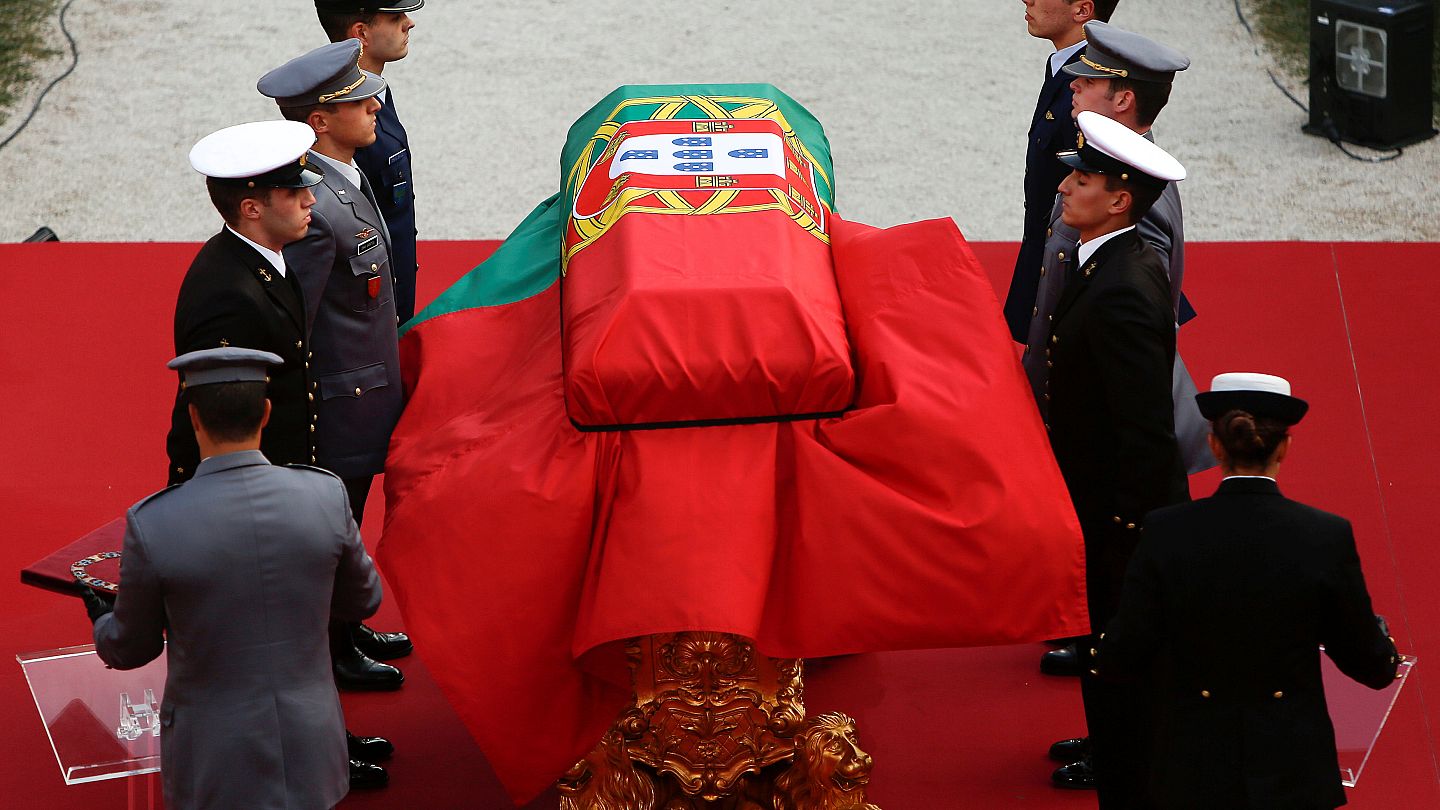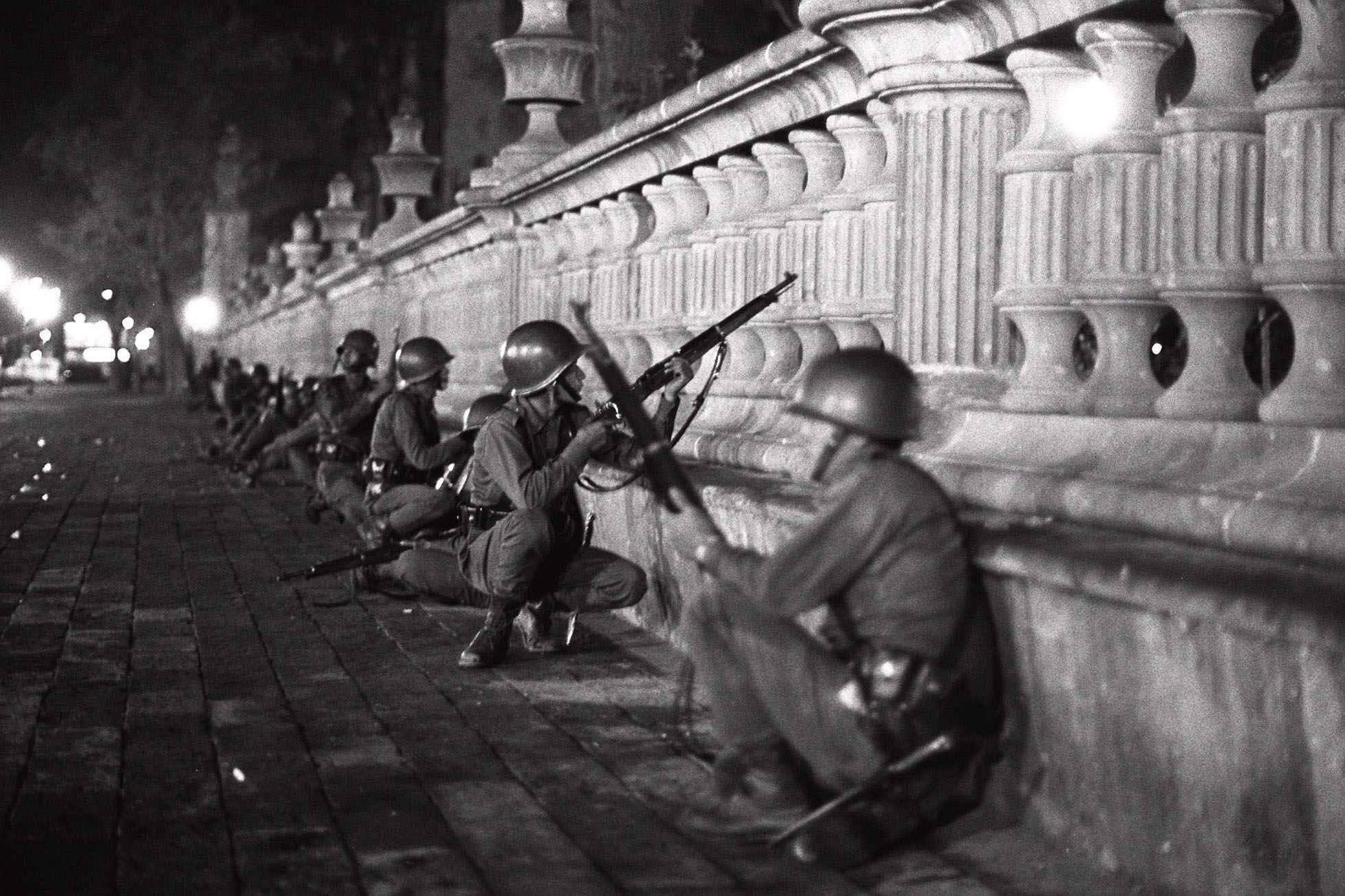......"when Soares got the blessing from the Alvarado family to exhume Pope John Paul III's body, they discovered something quite odd during the secret examination of the late Portuguese Pontiff's body: finding large injection spots on his back and following a private autopsy, the medical examiners from the Portuguese Air Force tested the traces of huge concoctions; Dr. Miguel Eanes, who was serving as Major in the Portuguese Air Force, put two and two together, "I know damn well that the Pontiff didn't have from a so-called heart attack. Pope John Paul III was murdered and it's quite obvious it was an intelligence operation from foreign forces, who had a lot to gain from this."
The public appearance of Bush walking away from the economic trade development negotiations, leaks about what Robles allegedly said to Shultz including the late Pope John Paul III in the months before the Pontiff's mysterious death, it was all building to a head. Anne [Armstrong] called for a full meeting of the General Assembly rather than just the Security Council, largely out of the hope that she could use it as an opportunity to more publicly remonstrate against the aggressively repressive Robles dictatorship in Mexico. There were strong explosive allegations that the Direccion Federal de Seguridad (DFS) (later renamed the Centro de Investigacion y Seguridad Nacional: CISEN) were the likely culprits in participating in the death of Pope John Paul III, allegations which would be revealed soon......
Anyways, despite the President's approval ratings still coasting into the 60s, but slipping somewhat due to one-party fatigue of the White House (Republicans have controlled the White House since 1969) something was bound to give on what to do with the Robles administration after 13 years in power, whether economic sanctions, tariffs, etc., Back in the Summer of 1983, Robles announced he wouldn't be seeking reelection to a fourth term as President in 1988, when he tapped his son, State Governor of Mexico, Colonel Oscar Robles, Jr., as his successor to the Presidency: which enraged many of the populace inside Mexico.
The public balked in polling surveys about the idea of dealing with Robles and his cronies, who were looting the millions coming off the recent economic trade deal policy from 1984. It's like the public wanted the issue dealt with, but couldn't decide how they wanted it dealt with. Plus, you've got the Portguese pissed off and furious upon learning the real details of the CISEN being involved in the death of Pope John Paul III. Shultz agreed to postpone the meeting with Mexican Foreign Affairs Secretary Bernardo Sepulveda Amor until after the United Nations meeting. Anne Armstrong got up there in front of the whole world and tacitly implied that it was the CISEN, who was involved in the assassination, but despite the explosive allegations, Armstrong stated that the United States was still bound by the Hays/Bunau/Varilla Treaty and that "America stands by its treaty obligations, and we will continue doing so, and will also be expecting other states to executing those treaties into which they've agreed and entered with us." The Mexicans didn't respond; they instead walked out. That the Soviets then vetoed a Security Council resolution, which would've been in favor of the United States and Portuguese positions, seemed to be a clear signal to anti-Robles politicos and similar types in Latin America and the Third World, that the French had their back. I think they felt they had to, after watching Colombia fall into chaos with the right-wing military coup led by Najera, who successfully removed the leftist Quintero from the Presidency and especially after Sweden kicked their asses in the Little War in 1981. This was becoming a major escalation......"
-Former White House Communications Director David Gergen
Summer 2017 Interview
......"Dad wrote something really ominous in his diary that I remember reading years later, because if there's two things Dad never talked about, it was The 04.24.86 Incident and Operation Villarreal. He really felt that he was going to spearhead an agreement, then he had his legs cut out from under him by triggered extremists at home, the ones outside of government or those in Congress in their perches-and radical Soviet cutouts abroad. We could have had one of the greatest trade deals on economic development between the United States and Mexico, I genuinely believe that, and he believed it too. Anyways, Dad wrote the night the Soviets vetoed the joint resolution at the United Nations, and Robles went on camera to puff out his chest about this hours later on Mexican national television...... he wrote, "We just passed the last off-ramp on the highway and the point of no return." Nothing else. That's the entire entry. I think about it all the time, when I think about Operation Villarreal and the 04.24.86 Incident. I don't know that the entry ever made it into his published works that he wrote after leaving the White House."
-Former President George Walker Bush
46th President of the United States
20 January 2001 to 20 January 2009
44th Governor of Texas
17 January 1995 to 21 December 2000



